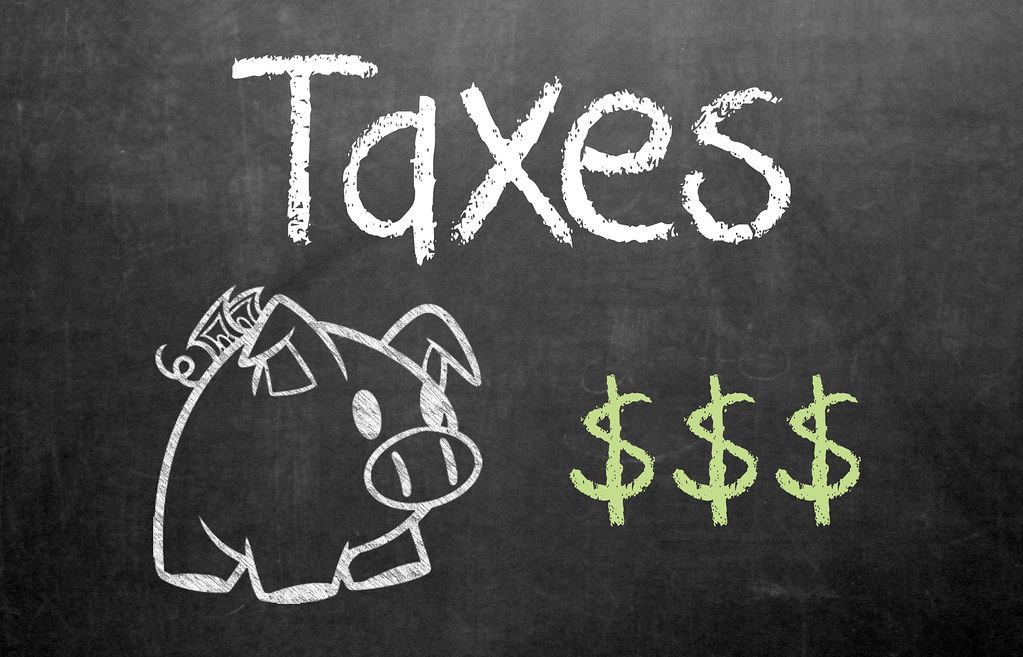A Reverse Harberger Tax for Eminent Domain?
A George Mason economist has an intriguing idea but maybe he has it backwards.

In a post about balancing interests of stockholders and public firms vis-à-vis hostile takeovers, a subject in which I have little interest and even less knowledge, Robin Hanson uses an analogy closer to home. Literally.
The key problem is that when a takeover attempt starts to buy up lots of stock in a firm, people start to notice and then bid up their prices, expecting that a takeover will improve the value of the firm. Can we fix this problem?
Yes, consider that when the government wants to buy a bunch of land properties to build a project like a road, it faces a similar problem, that after the first few purchases the other property owners will greatly raise their price, knowing that the government can’t do its project without all the needed properties.
The standard solution to this problem is eminent domain, where the government forces them all to sell at some official “market price”. But, as I’ve discussed, a better solution is to use a Harberger tax, where each property owner must always declare a value for their property, a value which is used both to set their property tax, but also to be an always-available sales price for the property. These values will generally be reasonable, due to owners trying to avoid paying high taxes, allowing the government or any other party to quickly assemble large property bundles for any big project without needing any special powers.
We could use the same trick for stocks. Tax stock ownership, and require every stock owner to declare a value for their stock, a value used both to set their tax, and also available to takeover attempts as a sales price. Then a takeover could happen overnight, as 51% of the stock is suddenly purchased at its declared Harberger tax value.
So, again, I haven’t thought about the stock issue enough to have an opinion and, since all of the stocks I own are in the form of index funds, I’m not terribly incentivized to study the issue further. But the issue of eminent domain and the Harberger tax idea intrigue me as a homeowner.
My initial question—Would the “always-available sales price” apply only in the incredibly rare event the government wanted to buy the property, or would literally anybody be allowed to buy the house at that price?—was quickly answered by scanning one of Hanson’s linked previous posts: Yes. There might be a clawback provision allowing a property owner who had inadvertently set the sales price too low to remain in the house for a premium of, say, 1%, but otherwise, yes, anyone could buy the price at that level.
This strikes me as an incredibly fraught solution to a virtual non-problem. The housing market fluctuates considerably and most of us lack the time and information to keep up with it. There’s simply no reason to require property owners to advertise a sale price unless they’re trying to sell.
Ah, but what of the problem of localities needing to buy up properties to build highways or, increasingly, make room for private economic development projects?
Here, the Harberger tax makes sense. But why not reverse the burden? That is: the government sets the property tax value at the rate at which it is willing to buy back the property? With a proviso protecting homeowners from a devaluation ahead of an intended buyback? (Maybe require payment of the highest assessed value over the last five years?)
I’m sure Hanson has thought about this a lot more than I have and there’s a good chance I’m missing something. But his proposal seems to require homeowners to either price their property artificially high—and thus needlessly inflate their tax bill—to avoid being rendered homeless to prevent a really rare conundrum.






The problem with the Harberger Tax is that it requires every property owner to view the property as an investment and take an investor’s mindset, rather than the property as a home or business location. Plus needing to develop the sophistication to legitimately do that and reevaluate it annually. Might be easier to rent.
Now how would the Harberger Tax account for a particularly hot RE market?
Why don’t we just cut out all the parts in between and just go ahead and sell the entire US at the rock bottom price of one acre of Alabama swampland. I can’t help but see all the ways regular folks are going to get screwed by a bevy of corporate lawyers and their greedy paymasters if this were actually implemented.
I own 12.5 acres of Ozark forest cropland. I’m just gonna guess and say it goes for $2-3,000 per acre. It’s just trees and rocks, right? But if the Disney corporation should decide to locate their new theme park Ozarklandia centered on my property, it’s not just trees and rocks anymore, is it? It’s a central piece of their multi million $ plan. My land’s real value just went into the stratosphere. But I have to sell it for the price of trees and rocks?
If you think the fights over eminent domain and it’s use for private gains is ugly, just wait for the shooting wars that will erupt over that.
@Sleeping Dog:
Yes. My home in now worth considerably more to me than it was a year-and-a-half ago when I bought it. Not to mention the rather significant costs associated with finding another house, getting packed up, financing another mortgage, and the inevitable painting and remodeling projects to make the new home suit your tastes.
@OzarkHillbilly:
But I think that’s the problem Hanson is trying to solve. It actually is just trees and rocks until Disney builds the theme park but, once people get wind of it, the price gets bid up because Disney has deep pockets.
Beyond that, as noted in the post, what winds up happening nowadays is that the government will just exercise their eminent domain over said trees and rocks—and those of your neighbors—in order to get the vastly increased property taxes and other economic benefits of the new theme park. I think that’s an outrageous and illegitimate use of eminent domain power but the courts have backed it.
My first thought was: I’m over 65, my property taxes are currently frozen, so I will set my sales price sky high since the valuation will not impact any tax bill.
@Sleeping Dog:
Exactly.
Elsewhere in the law, we make sharp distinctions between properties owned as primary residence, properties owned as secondary residence, properties owned to generate rental income, properties owned to house a sole proprietorship, etc. This is not all regulatory capture; there are good reasons to make these distinctions.
In the case of eminent domain, fair compensation for the property I live on would include not just the market value of that property, but compensation for the hassle of finding somewhere else to live that works for both my job and my wife’s, transaction fees associated with shifting my domicile, and lost wages while dealing with all of that crap instead of working. None of that applies for something like a rental property that I own.
(I won’t touch the discussion of fair compensation for a business site, and how it depends on what kind of business we’re talking about…)
No James, it’s not because Disney has deep pockets, it’s because they intend to make billions of dollars off it and if they want it, they should pay it’s real value, what it’s worth to them. And if I ask more than they are willing to pay, they are free to walk away from the deal. It’s called the free market, and you seem to think the answer to this “not in any way shape or form a problem” is to rig it in favor of large corporations and rich f*cks.
@James Joyner: There are at least 3 categories of these kinds of transactions. One is a classically public purpose, such as building a road. Two is a classically private purpose, when someone wants to buy my house because either they want to live there or flatten it and use the property for some other private purpose. James alludes to the third, where the government uses its eminent domain authority to front for a private purpose ostensibly because that private purpose generates more value in tax revenues to the government or is some other form of urban renewal.
I can conceive of no reason why I should be obligated to preset some value for my home for other private individuals to take advantage of. Eminent domain authority is there to provide governments the ability to take action for the public good and quick take authority – government can take the land now and argue later about its value – greatly reduces the ability of individual land owners to extract value from their hold-out status. The third category is a legal morass that we could discuss for days and has been fought over for decades, but I don’t see the Harberger Tax as any advancement of that issue.
BTW, as to the Disney example, back in the 90s, I believe, Disney actually set up a bunch of shell companies to try and subtly buy up a large block of land in rural northern Virginia to build some kind of Disney park. But landowners figured out who the ultimate buyer was, Disney’s cover was blown and the project was dropped because it got prohibitively expensive to acquire land.
Honestly, I don’t care about Disney’s (or any other megacorps) troubles. I have a problem with organizing the government in a way that makes things easier for entities which are already super powerful. They are gigantic, with vast resources already. Why make things easier for them?
If I recall correctly, this was one of the few things I agreed with Antonin Scalia about. I believe he was quite skeptical of eminent domain proceedings for “development” purposes.
Seems like a solution that would introduce more problems than it solved, and the conclusion of your old post linked above is pretty much where I’m at. Eminent Domain for necessary government projects is one thing. When it comes to private developments, I don’t see the problem with the last sellers holding up the developers. The free market, baby.
This does bring back to mind the building of Paul Brown Stadium in Cincinnati. Mike Brown, owner of the Bengals, was point man on the deal, but it was really conceived and pushed by a local produce dealer whose name escapes me at the moment. He presented himself as a humble small businessman just carrying on his immigrant father or grandfather’s little produce business that would be displaced by the stadium. At one point he was selling all their shredded lettuce to McDonalds and the family corporation was more into big bucks real estate development.
Prior to the deal he’d sued the city to have his property tax evaluation lowered to like half a million. When the county came for it under Eminent Domain he sued and got the valuation raised to like six million. He then took the money and decamped across the river into KY, which it appeared he’d been planning to do all along. Also, the County Commissioner who’d been instrumental in negotiating the deal got a cushy job with the Bengals.
@James Joyner: Forgot to say that I think the use of eminent domain for these purposes is an absolute abuse of govt to enrich the few, and that I don’t think the answer to it is a different abuse of govt to enrich the few.
@Jay L Gischer:
Because they are gigantic, with vast resources. They have the means to bribe the government into making things easier for them. Of course the bribery is never done so crudely as to actually involve a provable quid pro quo, but the end result is still the same.
Decades ago I came across a Marxist economist who said basically government has two functions, to subsidize those who are wealthy and powerful enough to demand subsidies, and to legitimize it’s existence by doing things for everybody else. And that conservative/liberal political differences were really over whether they could get away with more subsidizing or needed to build up a bit more legitimacy.
I don’t know how it works where you are, but around here, the assessed values of properties are usually well below the market values of the properties (in my case, my house was purchased for $175k and the tax assessment it only $91k), so I don’t think this is the burden you think it is in a lot of places.
IIRC, the assessment value is supposed to be the “unimproved” value of the land and doesn’t reflect the value of anything built on it.
First, I submit that when Trump wrote hamberder, he was probably thinking of harberger. Just like when he wrote covfefe he was thinking coefficient of variation.
That’s for Bill. Person… woman… man… camera… tv…
@James:
I hate to tell you but Zillow and Trulia are already doing this for you, updated daily. I check my house from time to time to see what fantasy money there is.
This strikes me as the perfect example of modern conservative thought — free market capitalism for the poor, socialism for the rich.
@Michael Reynolds:
Oh, I’m aware. Indeed, when we bought this house and sold three others in 2019 (long story) I used those prices along with Redfin’s as a baseline. But that’s just a reasonable estimate of what the market price is; I’m not required to sell my house at that price at a moment’s notice.
@Stormy Dragon:
Interesting. That’s not the case locally. Here, there’s a price for both the land and the dwelling. And, coincidentally, when the dwelling value goes down–as during the housing bubble and various recessions—the land value mysteriously rises to make up the difference.
This has got to be the stupidest idea I’ve seen in a long while. It’s obvious he hasn’t thought it through in the least, and that it completely discounts both basic human nature and how powerful people and entities will use it to drive any who oppose them to ruin and misery. So – he’s a libertarian, right?
Eminent Domain is definitely a problem, specifically the overuse of it.
Making it even easier for the big guys to screw the little guys is definitely NOT the solution, whether talking housing or stocks.
The last thing we need is more firms trying to take over businesses and break them up for short term market profits. Wall Street has far too much influence as it is. And I say that as a decently large stockholder compared to most.
People like Hanson and ideas like this are why so many of the have-nots are saying screw you to the economic elites of this country.
@James Joyner:
I could be wrong, but whatever the reason, the assessment values are way below the market values, so I don’t think people would be very happy if the government decided it could buy any property for the assessment value without negotiation.
@Stormy Dragon: Yes, that’s certainly the case. And I fully agree with @DrDaveT that “fair compensation for the property I live on would include not just the market value of that property, but compensation for the hassle of finding somewhere else to live that works for both my job and my wife’s, transaction fees associated with shifting my domicile, and lost wages while dealing with all of that crap instead of working.”
And, as noted in that piece from way back in 2006, I agree with @wr and @OzarkHillbilly that eminent domain should be reserved for true public goods like infrastructure and not for private interests like shopping malls and the like that merely generate tax revenue.
@Michael Reynolds:
Michael, a Zillow valuation story. I live about a 10 minute walk from the beach on NH’s tiny seacoast. A couple of years ago I checked our valuation on Zillow and it was about 3X what I estimated. Why? When we moved here 15 years ago in the immediate area there were about 30 summer cottages, none winterized, some the only heat was a space heater in the living room. Size wise they average 600-900 sqft. About half of them are gone replaced with year round 2500-3000 sqft houses that fill the tiny lots. Valuations hover around 7 figures.
To set the value of our house, they simply divided our square footage into the average selling price over the previous couple of years. My wife has a friend who is RE broker, we asked her to do an eval and Zillow was 2x what she believed. And if we sold, most likely the buyer would tear the house down. All the value is now in the property.
This sounds like a great way to create predatory real estate agents. With today’s tight real estate market I get several calls and texts a week saying “I heard you are interested in selling your house,” [to which I reply, who told you that, you are lying] or how much do you want for your house [I give a number 3-4x value]. This is also would create a major social crisis as grandma gets fooled into selling. A few years back near me a developer approached the elderly owners of a bowling alley (their son ran the place) with an offer. They were wow, that is a lot of money ($2.5M) and their kids were saying it was worth more. They sold (we’re Millionaires!), their son had to get a new job, and 135 apartments are being completed.
My parents last few years their neighborhood had begun the transition from 1960 middle class ranch houses to McMansion Hell. The lots were decent sized and the zip code had become the richest in Misery. The house they bought in 1958 for $20,000 sold in 2006 for $320, 000 in a 5 minute bidding session.
Took them only slightly longer to knock it down.
@OzarkHillbilly:
The other day I walked down for a sandwich and passed 4 tear downs, one of which was a pretty nice house. Since many of these houses were cottages, the footprint of new house can be no larger than the footprint of the tear down or within the max foot print of the lot. The foundation for all of these places fill the lot, except for the 30′ setbacks (unless the old house was less), 30′ off the rear lot line and 6′ on either side. With the frustrating thing being, that area regularly floods after a decent rain as the water table is only down a couple of feet and behind this area is a salt marsh. A nor’easter on a day near the King Tide will guarantee that the marsh will peak 3-4 feet above normal and at a typical high tide, the water is lapping against the back lot lines of the lowest houses.
The property owners whine and complain and want the town to do something, i.e. they want the rest of us to pay for it. Though short of a levy, which would require taking dozens of houses*, lots of drain tile and a pumping station to excavate the water, I’m not sure what can be done.
*Of course the property owners believe the levy should be built in the salt marsh and that ain’t gonna happen. I’m here fat dumb and happy living about 50’+ above sea level and I watch the water from the fresh water marsh behind me creep into the neighbor’s yard after heavy rains, that house is ~20′ lower than ours.
Libertarians actually do have some good ideas, but you get an awful lot of stuff like this. It assumes that everyone else is obsessed with maximizing their worth full time and all that they think about is money. Most people dont have the interest to do this and a lot dont have the skills. OTOH, would be a great deal for finance people and real estate people (once again the FIRE sector benefits) who actually do that stuff for a living and could screw people who didnt keep up. 1%? Great. You get to pay $2500 because you didnt update your tax in time.
Steve
I don’t know enough about the issue to add anything of substance to this discussion. But I will note something about Robin Hanson. He is an unusual thinker (to put it mildly) with an unusual background. His ideas may be atypical and/or absurd, but he is nothing if not a big/deep thinker. Hell, just look at his working paper on “grabby aliens.”
I think the best way to read a lot of his work is captured in how one of his colleagues described him: (roughly) “When most academics tell me about their research, I say ‘Well, maybe’ and then promptly forget about it. But when Robin tells me about his research, I say ‘That’s impossible!’ and then go on to think about it for months.”
I don’t think we want X million Robin Hansons running around there, but I do think we need more people who are willing/able to be avant garde in this respect.
@MarkedMan:
I have no direct knowledge of this person, but the GMU faculty is fairly well known for libertarian tendencies. So well known that people ask on Quora “why does GMU have so many libertarians?”. The answer probably has something to do with heavy funding from the Kochs and Scaife and such.
The one GMU research fellow that I know is a pretty over the top libertarian himself. Which is hilarious, because his area of specialty is defense acquisition…
@Mimai:
This reminds me of a Larry Niven story called “What Can You Say About Chocolate-Covered Manhole Covers?”
@Kathy: Ha! That’s a great connection. I like how your brain works.
@DrDaveT:
I think eminent domain should require paying 2-3 times the fair market rate. Low enough that it’s doable when needed, high enough to be a windfall for the victims, and to discourage its use.
And high enough that the inevitable fight over what is fair market rate isn’t leaving people screwed.